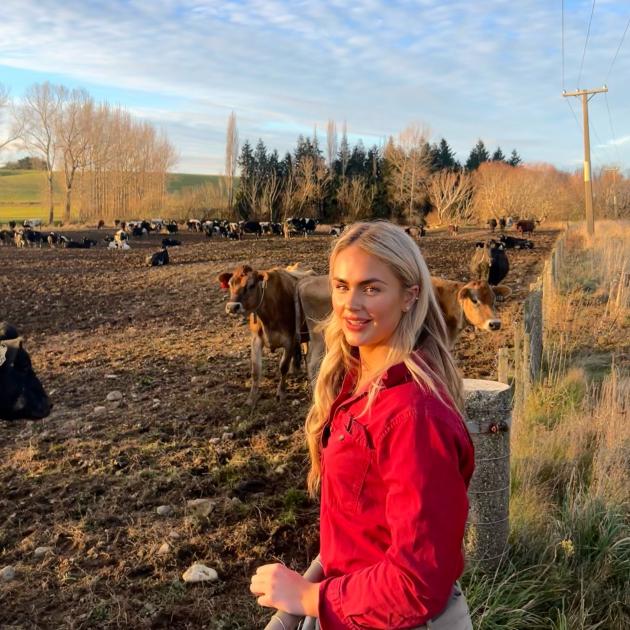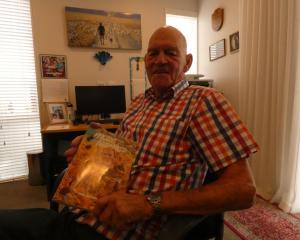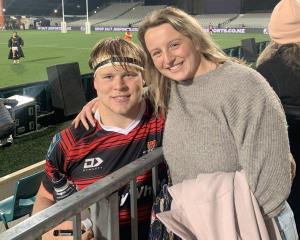
North Canterbury-raised Hayley MacDonald knew from the start she wanted to work in agriculture.
She is one of the lucky ones to have a clear direction from early on of where she wanted to be and quickly realised this wouldn’t include academia.
As a 16-year-old school-leaver, she worked for a year as a barista at an Arthur’s Pass cafe before going dairy farming and building a base of experience in the agricultural industry.
Now she is in her dream job after being taken on by PGG Wrightson (PGGW) as a livestock trainee, living in Invercargill and commuting 45 minutes to her Gore base.
Joining the stock and station company in May, she is content she made the right call to leave school early to get to her end goal.
Growing up on a lifestyle block in Ohoka, she would help her parents raise a dozen or so Charolais and Hereford cattle and small flock of sheep.
School reinforced working with livestock in some form or fashion would be her career destination.
"Throughout high school is when I first looked into doing that because I was raised around sheep and beef. Taking agriculture as a subject in year 11, I had it in the back of mind that this was where I wanted to be. Being at school I just wanted to get out into the workforce, so I got out of school and went working. After that I just realised I wanted to be in agriculture."
Ms MacDonald, now 21, appreciates leaving the classroom early was a big call and, as the daughter of a teacher father, the value of education.
But it was the right move for her.
"School’s not for everyone. Fortunately ... [leaving early] worked in my favour, because if I didn’t do that so young I wouldn’t have such thick skin now, so I’m very grateful for that. I’ve learned a lot of people skills and can hold a conversation with plenty of adults and farmers, which I might not have been able to do without going to work early."
Had she stayed on at school she might have gone on to become a psychologist, coming from a family with a background in nursing and general interest in mental health.
Instead, she left Rangiora High School to become a barista in the small village of Arthur’s Pass on the spine of the Southern Alps.
"I’m very spontaneous and my parents were very supportive because they knew school wasn’t for me so I chose that place for a job and [thought] ‘why not give it a go while I’m still young?"’
Making coffee for sometimes demanding customers was challenging, but the skills she learned from the ins and outs of customer service kept her in good stead in her progression into farming.
She said even though it sounded cliched, the biggest skill she took away from that job was the people skills.
From there she became a farm assistant, working with a herd of 800 cows on an Oxford dairy farm.
"I knew then that 100% I wanted to stay in agriculture for the rest of my life, even though I didn’t want to be a dairy farmer for the rest of my life. I appreciated the lifestyle, but it wasn’t for me. First and foremost I loved working with cattle and especially liked looking after the health side of things and recognising when they were sick and treating them. That was really rewarding and, overall, just being outside and doing what I love."
Outside of animal health, working on the farm gave her a good grounding in feed calculations, milk production, paddock rosters, genetics and breeding and an understanding of farm business.
Nor did the early hours bother her as she naturally gets up at 4am to go for a walk or a gym session.
Over four years she worked in the same role on three large irrigated properties in Canterbury.
About this time she was wavering towards going to Lincoln University, but was again swayed otherwise to keep learning at ground level.
"I was thinking about doing a [diploma of agriculture], but I thought again ‘do I go and get a piece of paper to prove I can do this stuff or do I go and prove my way by working up the ladder in the workforce?’ and that’s what I chose to do. I didn’t want to waste anyone’s time or my own time by doing something I didn’t learn at school when I could do that visually, if that makes sense."
After dairy farming she wanted to "dip her toe" in other facets of agriculture so took on contract work in Templeton for a plant-breeding, research and development company.
"I work best driving for a new goal and saw dairying as a baseline and just wanted to keep working up the ladder until I got my dream job."

She’s grateful for the opportunity as today she can comfortably hold a pasture renewal conversation with dairy farmers in her new role.
In yet another twist in a short working career she went to work for Halter, the agri-tech company best known for its fenceless technology and innovative cow collars.
"I saw that role was working with farmers, but also working with stock and initially that was what attracted me the most. Just diving in deep into that role was a good opportunity. I had worked with Allflex collars before and was aware what that could be like and that attracted me to the technology side. I did learn that farming is going to bring in a lot more technology now, and seeing the way Halter made farming a lot easier it is only going to increase more. The greatest thing I took away from Halter was seeing how the collars help animal health and that’s an amazing thing. I really liked that about [Halter]. A lot of people when they think Halter they just say ‘yep fences’, but it’s so much more than that."
Based in Christchurch, she was a crew leader of three to six staff putting solar-powered collars on cows throughout the country and collecting data.
Learning how to lead by example, even when she was tired, and how to become a problem solver were among the skills she developed.
"Everyone in that crew knew what they were doing, but when push comes to shove they do look for that leadership role. When things go wrong, it’s about knowing what to do in a calm manner. I took a lot from that — knowing you had to be cool, calm and collected when stuff goes wrong."
A positive attitude and working ethic earned her an internship at Halter’s Morrinsville research and development farm.
As fascinating as this was, she realised the more in-depth technology side of the business fell outside of her true passion for working with livestock.
After another contract for Agtrac weighing 2-year-old cattle and then plenty of door-knocking and perseverance, she got her big break to become a stock agent.
So when the offer of a two-year traineeship with PGGW was put in front of her, there was no hesitation in accepting the dream job.
"I absolutely love it and have to pinch myself I have this job — I’m very lucky. The baseline of what I really wanted throughout every job I’ve had is working with farmers, helping them to achieve targets and working around stock. That’s what I like doing and is what attracted me to being able to work in a great team of like-minded people who push each other on — that’s what I like."
She’s hanging on to every word of advice she can get from her boss, South Island dairy sales manager Mark Cuttance and other mentors.
"Everyone is really great down here. I put myself out there to learn things and they give it back and are really helpful, so I couldn’t ask for a better crew to work with."
As usual, the alarm continues to go off at 4am so she can fit in her personal exercise.
Then she typically goes on the road with another livestock agent to a farm and might help evaluate cows, carry out a grazing report or do a stock count.
Full days at other farms might include ticking off lame cows or drenching calves.
At the saleyards she might help pen out sheep and carry out clerical work for the auctioneers.
Every day was different with "lots of everything", she said.
Any reservations about being accepted as a young woman in a male-dominated industry were quickly cut short.
By her second day she felt right at home.
Again, she’s grateful for the chance to work with the company in her true calling.
Much further down the track she would like to have her own block of land with animals on the sideline while continuing to be a stock agent.
For the moment, she’s just happy to soak up everything there is to learn about being a livestock rep and grow into the job.
Happily based in Southland, she has no hesitation in recommending the role for anyone else her own age.
"I hope I can motivate people to get into this industry."















